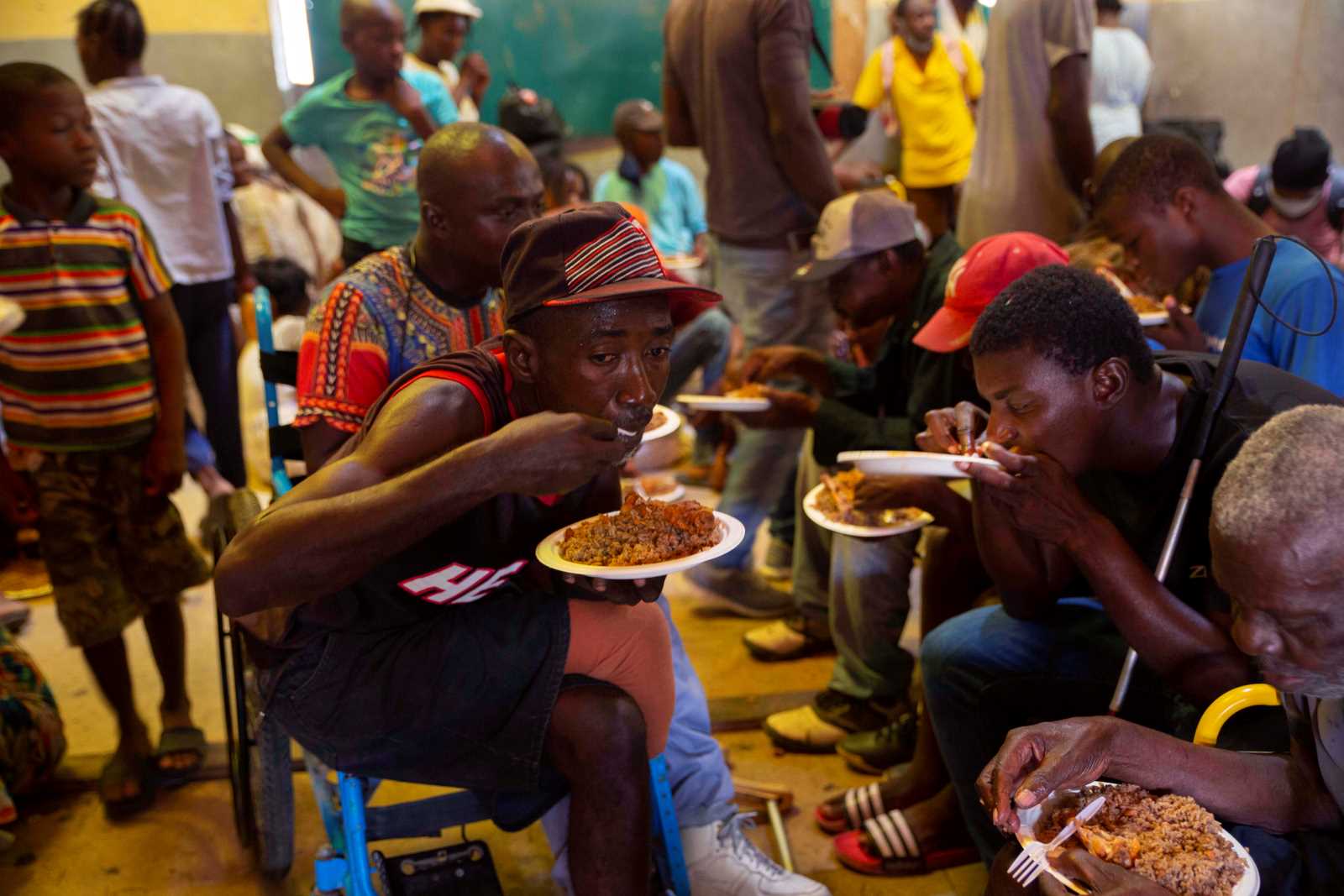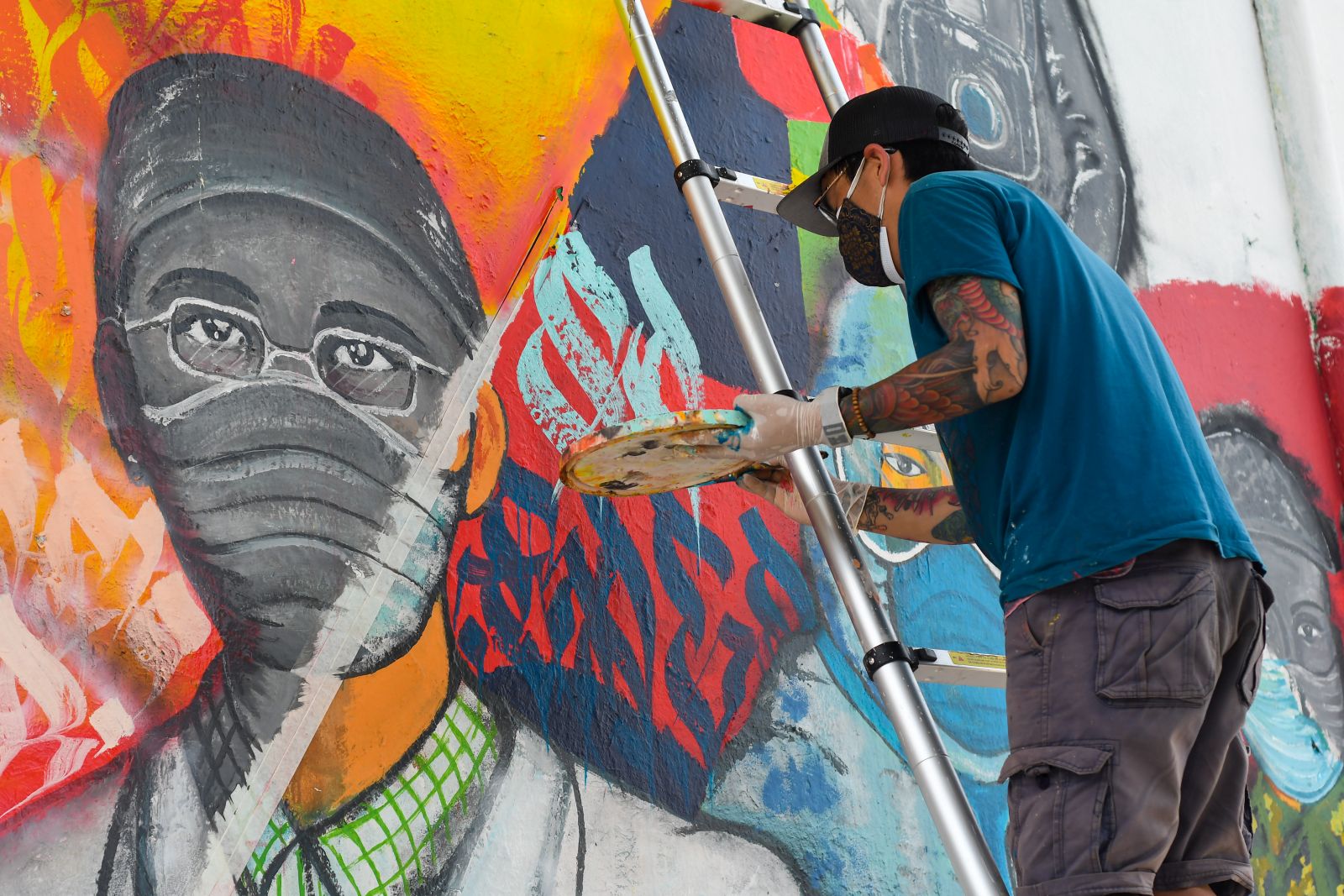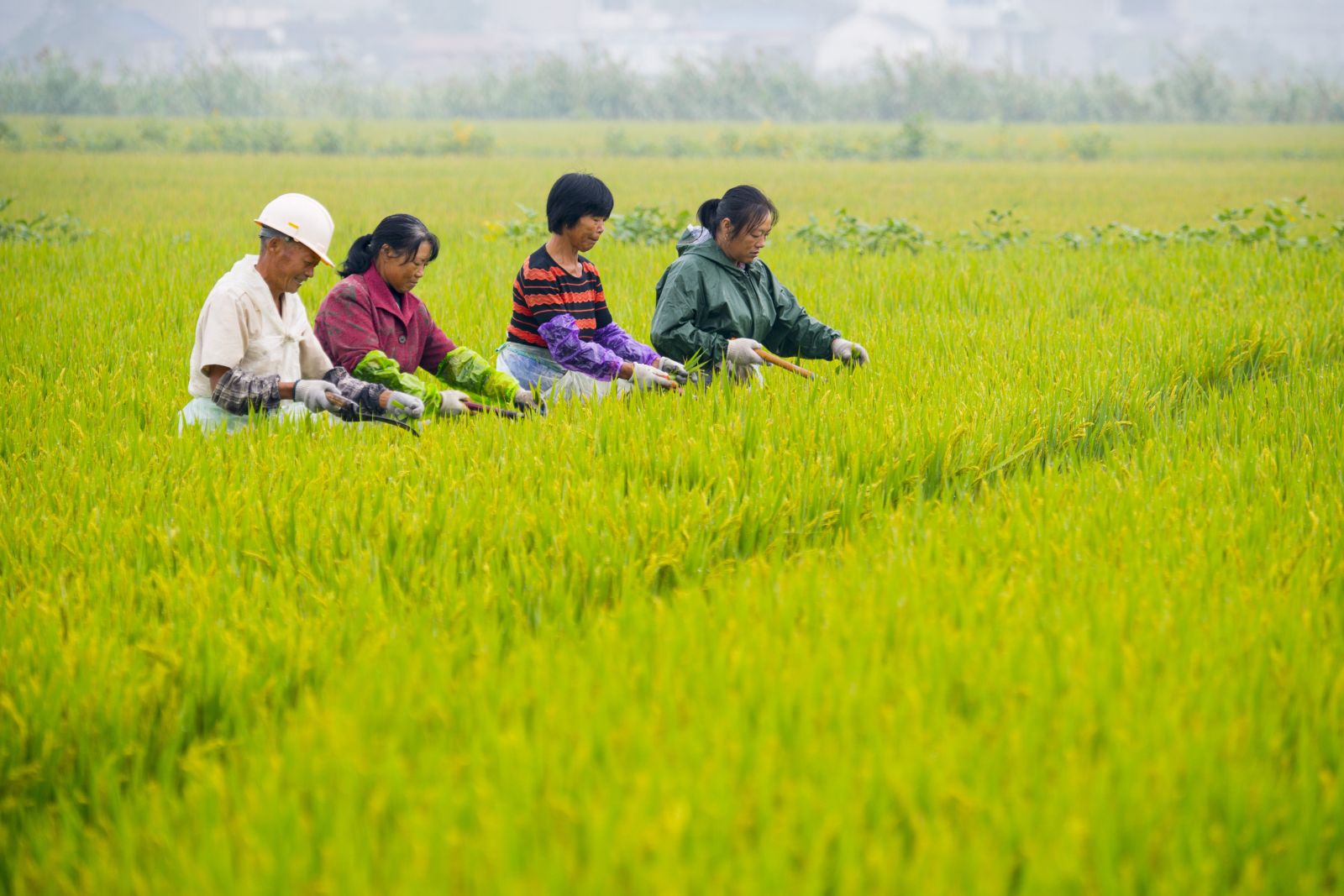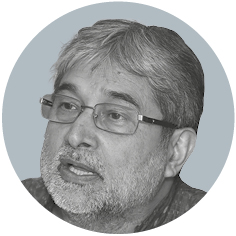The Gates Foundation
Private-sector billionaires setting global agenda
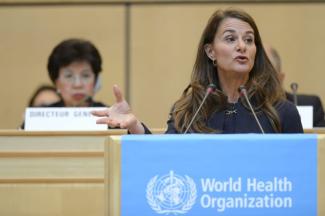
With an estimated worth of $ 88.5 billion, Bill Gates is the richest man in the world. He is also the most generous. Through the Bill & Melinda Gates Foundation (BMGF), he and his wife have donated billions from their private fortune to “good causes”. In 2010, the Gates joined forces with Warren Buffett, the second richest person in the USA, and initiated the “Giving Pledge”. They are calling on millionaires around the world to join them in donating at least half of their personal worth to charity. So far, 168 millionaires have pledged to do so. Buffett has promised to donate 99 % of his wealth, mostly through the BMGF.
The rich assuming responsibility, giving back and doing good: it all sounds promising and positive, especially today when multi-lateral organisations are chronically underfunded. As successful business people who have managed large corporations and projects, they can also offer valuable experience and skills that could help where governments and other institutions are failing. This narrative of the well-meaning philanthropist taking on the world’s troubles may seem attractive, but should we accept it unquestioned?
Donors as advisors
With around $ 40 billion in its coffers, the BMGF is the largest philanthropic organisation in the world. According to its annual reports, it has donated a total of $ 42 billion since it was established. The BMGF focuses its activities on international development cooperation with health and agriculture at the forefront. It spends more on health-care development than any single national government, and it comes in fifth in terms of providing support to agricultural initiatives in less developed countries.
This impressive record of financial contributions goes hand-in-hand with equally impressive political influence. Bill and Melinda Gates are represented on a number of international commissions and boards. The BMGF was the only non-governmental organisation invited to speak to the UN on the Post-MDG (Millennium Development Goals) Agenda in 2013. In 2014, Melinda Gates was the keynote speaker at the World Health Assembly, the World Health Organization’s (WHO) decision-making body. In 2010, then UN Secretary-General Ban Ki-moon appointed Bill Gates to the MDG Advocacy Group set up to mobilise support for the goals.
In short, Bill and Melinda Gates are regularly asked for advice on health, reproductive rights and climate policy, although they are not experts in any of these areas. They work at eye-level with various UN organisations. Executives from their foundation regularly move back and forth between the BMGF and multi-lateral institutions and corporations. The UN Development Programme (UNDP) has noted that philanthropic foundations no longer see themselves as merely donating money. They expect to be treated as full-fledged development partners who get a say in problem analysis and agenda setting.
The BMGF’s influence, and such the personal influence of Bill and Melinda Gates, on the global health and agricultural agenda is immense.
The WHO is the main player in global health care. Its mission is to help all people attain the highest level of health by fighting disease and promoting public health around the world. Its main source of funding is voluntary contributions provided by member states. Yet the organisation is stuck in a chronic financial crisis, since governments’ payments regularly fall short.
Therefore, the WHO depends on alternative sources of funding. Roughly half of its budget comes from philanthropic foundations, NGOs and the private sector. In 2016/17, the BMGF contributed 14 % of the budget. The WHO and its international health governance thus hinge on the whim of private parties. Gates and other super-rich individuals are under no obligation to continue their support from one year to the next. Accountable to no one, they could suddenly decide to withhold funding at the drop of a hat. This would leave the WHO and the global health-care system in turmoil, and the global community could do nothing about it.
Another problem with philanthropic donations is that they are generally earmarked for specific purposes. This is true of 80 % of the WHO’s total budget. In other words, the global health agenda has been taken out of the hands of the WHO’s General Assembly and is being set by private donors. These donors have the power to make decisions on what the multilateral organisation does and what it prioritises. They can refuse funding for projects that do not fit their agenda.
Market and technology
The BMGF thus increasingly shapes international health care. It takes a market-based approach, relying primarily on technical solutions to complex problems. The BMGF funds large immunisation campaigns, for example, and distributes medication and mosquito nets to prevent the spread of malaria. These measures undoubtedly help. But they do not address the structural reasons why governmental health budgets are chronically over-stretched. The foundation prefers campaigns that can be implemented like business projects – with a lot of money, private-sector contacts and quick, measurable results.
In particular, the foundation favours public-private partnerships. PPPs, the argument goes, are effective because they reduce the overall cost of medical treatment. The problem is that this argument has been proven wrong. According to Doctors without Borders, in 2014, comprehensive immunisation for children was 68 times more expensive than it was in 2011, while GAVI, a PPP set up to improve child immunisation rates, only managed to reduce the cost of some vaccines in a few countries.
Moreover, the GAVI approach is insufficient to stem disease. A vaccine alone does not make someone healthy. Hunger, thirst, poverty and social inequality also play a significant role in poor health and the spread of disease.
Allowing private-sector donors to define the research agenda is particularly problematic, as they tend to shift the focus to developing newer and better vaccines to prevent transmittable diseases like malaria and HIV/AIDS. This limits research into non-communicable diseases, or ways of preventing pneumonia, diarrhoea and malnutrition, even though these cause 75 % of all child mortalities.
The BMGF’s research and funding favour pharmaceutical multinationals like GlaxoSmithKline, Novartis, Roche, Sanofi, Gilead and Pfizer. The foundation and its founders hold shares in many of these companies, which leads to a clear conflict of interest. The corporations profit from the Gates Foundation’s focus on pharmaceutical strategies, and the resulting corporate profits put dividends back into the donors’ pockets. “I’ll scratch your back if you scratch mine” has proven to be a clever business model, and the philanthropy label gives it a positive spin.
The Gates Foundation has also been criticised for being a major shareholder in corporations, whose products promote cardio-vascular disease, diabetes, obesity and other chronic illnesses. According to its 2015 tax returns, the foundation holds Coca Cola shares worth $ 538 million. It also owns stock in the food-industry giants Unilever, Kraft-Heinz, Mondelez and Tyson Foods as well as alcoholic-beverage producers Anheuser-Busch and Pernod.
Global health policy and disease prevention require more comprehensive and inter-disciplinary approaches. In 2008, a WHO report highlighted that social and economic factors have a greater impact on the health than access to medical care. These factors include levels and distribution of income, living and working conditions, education and environmental hazards.
It is bewildering that the BMGF’s agenda focuses disproportionately on technical medical services rather than on systemic change and improving socio-economic conditions. It would make sense to invest in expanding and improving a country’s ability to promote the health and welfare of its citizens, but funds flow primarily into the private sector and onto the balance sheets of American and European pharma multinationals. This is in part due to the broad application of the PPP model. A few rich businesspeople are setting the global policy agenda, even though people on the ground might have different priorities altogether.
Underrated agro-ecology
The situation is similar in global agriculture. The BMGF tends to see a lack of technology and modern farming skills as the primary drivers of hunger and malnutrition. This approach to fighting hunger is not new and goes back to another philanthropist – John D. Rockefeller in the 1960s. Since 2006, the Gates and Rockefeller foundations have joined forces to promote what they call the “Green Revolution in Africa” to the tune of $ 3 billion so far. The idea is to use hybrid seeds, biotechnology, synthetic fertilisers and genetic engineering to increase agricultural output. Around 96 % of all funding is channelled to American or European NGOs that implement the measures.
Critics rightfully accuse philanthropists of using their development approaches to open up African markets to large American and European corporations and NGOs, all too often generating profits for the donor institutions themselves. More sustainable local, social and environment-friendly alternatives like agro-ecology continue to be underrated. They are relegated to the side-lines.
Moreover, the paternalistic top-down approach robs local people of the freedom to shape their economies and lives themselves. The risks and side-effects of technological development, from genetically modified seeds to the negative impact of industrial agriculture and the methods it employs, are rarely discussed democratically.
Bill Gates is exerting considerable influence on international development policy and increasingly setting the agenda. As civil-society stakeholders and NGOs have often pointed out, his role has no democratic legitimisation. Unfortunately, the same critics seem to conveniently forget that the international activities of NGOs, multilateral organisations and governments are generally not discussed and subjected to a process of democratic and global legitimisation either.
Philanthropists like Bill Gates are not solely to blame for the problematic, one-sided tendency to try to solve complex structural problems and crises with high-tech quick fixes. It is not their fault either that socially fair and environmentally sound options are often ignored, and that the acute medical and technological aid provided to people has not been accompanied by more comprehensive social change. These are indeed overarching problems of global policymaking.
Governments are trying to duck their responsibility for upholding general welfare and promoting overall well-being of their citizens. Appropriate taxation of the elites and middle classes should be the order of the day. Governments must generate the revenues they need for health, education and research budgets. Otherwise, they will not be able to provide services for the poor social strata or public goods in general.
Philanthropists cannot be blamed for the fact that 80 % of the WHO’s budget is earmarked and the organisation’s hands are tied on which policies to promote. National governments are responsible for ensuring their citizens can live good lives and for ending humanitarian crises. It is their duty to provide multi-lateral organisations with enough resources to fulfil their missions. That includes adequate financial and human resources, as well as participation of civil society, local people and experts.
At the end of its 2008 report, the WHO concluded: “Social justice is a matter of life or death.” Social justice determines whether people starve, live in poverty, catch infectious diseases, and die as a result. Philanthropists like Bill Gates and his dedication to “worthy causes” are not the root cause of misguided development policies, but they do represent the flip side of the social injustice coin.
In a world in which the very few own more than the poorer half of the world’s population, the real issue is not how billionaires chose to spend their fortunes. The point is that amassing tremendous fortunes causes poverty, social inequality and environmental destruction. This underlying issue needs to be addressed. We cannot win the battle to end hunger, poverty and disease in the world by relying on the generosity and agenda-setting of well-meaning philanthropists. We can only solve the problem of inequity by creating a socially and environmentally just world for everyone.
Barbara Unmüssig is president of the Heinrich Böll Foundation.
vorstand@boell.de
